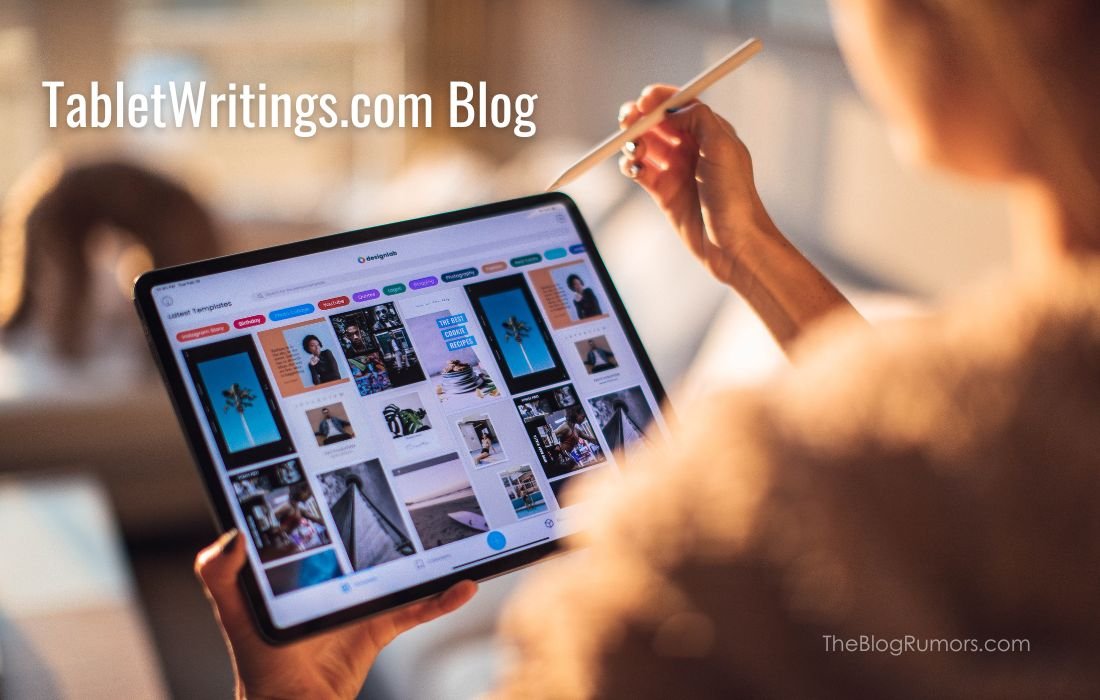Here at TabletWritings.com Blog, welcome! You’ve come to the correct spot if you’re searching for enlightening information about the craft and practice of tablet writing. Writing on tablets is a developing trend that combines productivity, creativity, and contemporary technology. From selecting the best apps to improving your writing experience, this article will walk you through all the different facets of tablet writing.
For authors, learners, and professionals who use tablets as their main writing instrument, TabletWritings.com is devoted. The purpose of this blog is to provide you with useful advice on how to use your tablet efficiently. We have something for everyone, regardless of your level of experience writing on tablets.
Why Tablets Are Perfect for Writers
Writing has been transformed by tablets. They are ideal for writers who are constantly on the go since they combine portability and functionality. While smartphones may be too small for effective writing, traditional laptops are large and heavy. With their larger screens and lightweight construction, tablets provide the ideal compromise.
We explore the factors that are making tablets the go-to option for writers at TabletWritings.com:
- Portability: Tablets are perfect for writing anywhere and at any time because they are portable. You can jot down ideas in the car, at a coffee shop, or even outside.
- Touchscreen Functionality: Note-taking and editing are made easier and faster by the touchscreen’s more intuitive navigation. Additionally, it seems more organic for creative writing.
- Versatility: In addition to writing, tablets can be used for reading, research, and communication. They are perfect for writers who need to multitask because they enable smooth task switching.
- Writing Apps: Tablets provide a multitude of resources for all types of writing projects and styles, with hundreds of writing applications available. There is an app that can help you write more efficiently, whether you’re working on a technical paper, a blog post, or a novel.
Choosing the Right Tablet for Writing
Your writing experience can be positively or negatively impacted by the tablet you choose. Although there are numerous models available, the following are important factors to take into account when selecting a tablet for writing:
- Screen Size: Typing and reading can be made easier with a larger screen. Generally speaking, a tablet with a screen size of at least 10 inches is best for writing.
- Battery Life: Writers frequently put in long hours at their desks. You can write for hours on end without constantly recharging a tablet with a long battery life.
- Keyboard compatibility: For extended writing sessions, typing on a screen might get tedious. Choose a tablet with strong keyboard compatibility, ideally one that offers an external keyboard that is responsive and comfortable.
- Storage Capacity: Working with huge text files, notes, and drafts is a common part of writing. To keep your work organized, get a tablet with expandable memory or lots of storage.
- Operating System: Make sure the tablet you select has an operating system you are familiar with and that supports the writing apps you require, regardless of whether you prefer iOS, Android, or Windows.
The greatest tablets for writers are reviewed in-depth and suggested by TabletWritings.com. To help you make an informed choice, check out our blog for detailed comparisons of various tablet models.

Also Read More: geekzilla.tech de donde son
Best Writing Apps for Tablets
Using the appropriate writing program can significantly increase your output. Writing applications make the process more efficient so you may concentrate more on your ideas and less on formatting or technical details.
TabletWritings.com recommends the following top apps:
Microsoft Word
Microsoft Word is a powerful word processing application that most writers are familiar with. Nearly every feature of the desktop version of Word, including formatting, review, and collaboration capabilities, is available on the tablet edition.
Google Docs
Another great writing tool that makes collaboration simple is Google Docs. It’s perfect for people who write on multiple platforms because you can access your work from any device with an internet connection.
Scrivener
Researchers, screenwriters, and novelists all adore Scrivener. It helps you keep notes, research, and drafts organized in one location and is intended for long-form writing. The application is strong and offers strong features for organizing intricate projects.
Evernote
Evernote is perfect for brainstorming, taking notes, and structuring your ideas. You may store voice memos, photos, and notes in the program, all of which might be useful when writing.
Ulysses
The minimalist writing tool Ulysses emphasizes writing without interruptions. Writers who desire a smooth and uncluttered interface will love it. It is a favorite among iPad users because it syncs with all of your Apple devices.
iA Writer
iA Writer is designed for simplicity and focus. Its clear, uncluttered layout makes it easier to focus on writing. For bloggers, essayists, and anyone else working on shorter articles, it’s ideal.
Notion
Notes, tasks, and documents may all be arranged in one workspace with Notion. This multipurpose application is particularly helpful for freelancers and content producers that need to maintain project organization.
Visit TabletWritings.com for more thorough assessments of these applications, where we weigh the benefits and drawbacks of each app to help you select the one that best suits your writing style.
Maximizing Productivity with Your Tablet
Using a tablet for writing can be very effective if you know how to get the most out of it. To make the most of your tablet writing experience, follow these important pointers from the TabletWritings.com blog:
- Use a Stylus: Take notes or draw ideas on your tablet using a stylus if it has one. Your writing process can be made even more flexible and creative with the use of a stylus.
- Cloud Storage: Make sure to regularly backup your work to cloud storage services like Dropbox, iCloud, or Google Drive. This guarantees that your work is secure and available on any platform.
- Establish Writing Objectives: Set writing objectives for each day or each week. Setting specific goals keeps you focused and effective because writing on a tablet can occasionally be less disciplined.
- Ergonomics Matter: Writing on a tablet for lengthy hours can be tiring. To lessen the pressure on your neck and wrists, get an ergonomic keyboard arrangement and a decent tablet stand.
- Use Dictation: Many tablets come with built-in voice-to-text functions. Use dictation to keep the words flowing if typing is wearing you out.
- Offline Mode: Many writing programs have offline modes, so take advantage of these when you don’t have internet access. This enables you to continue being productive in any setting.
How to Make Tablet Writing Enjoyable
It should be fun as well as productive to write on a tablet. Here are some tips to improve your writing:
- Personalize Your Workspace: Modify the tablet’s settings to fit your preferred writing style. Play around with screen brightness, text size, and layout to create a comfortable writing environment.
- Take Breaks: As with any other type of writing, it’s crucial to take regular breaks. To prevent burnout, set your tablet to remind you to take quick breaks every hour.
- Become a Member of Writing Communities: There are several online forums and groups where authors can exchange advice, criticism, and support. To keep inspired and motivated, interact with other tablet authors.
We at TabletWritings.com think that writing ought to be enjoyable. For additional advice on developing a motivational writing regimen, visit our blog.
Conclusion
TabletWritings.com is your go-to reference for all things related to writing on tablets. Tablets are a great tool for authors of all stripes because they provide a special combination of capability and ease. TabletWritings.com covers everything, from selecting the ideal tablet to using the top programs.
Writing on a tablet can improve your creativity and productivity if you set it up properly. Tablet writing is a fun and effective way to write, regardless of whether you are a student, professional writer, or a journal enthusiast. For the most recent evaluations, advice, and guidance on getting the most out of your tablet for writing, keep browsing TabletWritings.com.
FAQs
Is tablet writing better than using a laptop?
Some people prefer the portability and flexibility of tablet writing over computers. The decision, however, is based on your writing requirements and personal preferences.
What is the best writing app for tablets?
Your project will determine which app is best. Scrivener is a great tool for long-form writing, and Google Docs and Microsoft Word are excellent for group projects.
Can I write offline on a tablet?
Yes, a lot of programs, including Microsoft Word and Google Docs, include offline modes that let you write without an internet connection.
Do I need an external keyboard for writing on a tablet?
Many authors feel that utilizing an external keyboard improves comfort and speed during extended writing sessions, even though you can text directly on the touchscreen.
Are tablets good for creative writing?
Of course! Tools for brainstorming, idea organization, and creative writing are available on tablets. For creative writing assignments, apps such as Evernote and Scrivener are ideal.
To improve your writing career right now, learn more at TabletWritings.com!
Also Read More: What Does DJCR Stand for in Caprara Ads?





